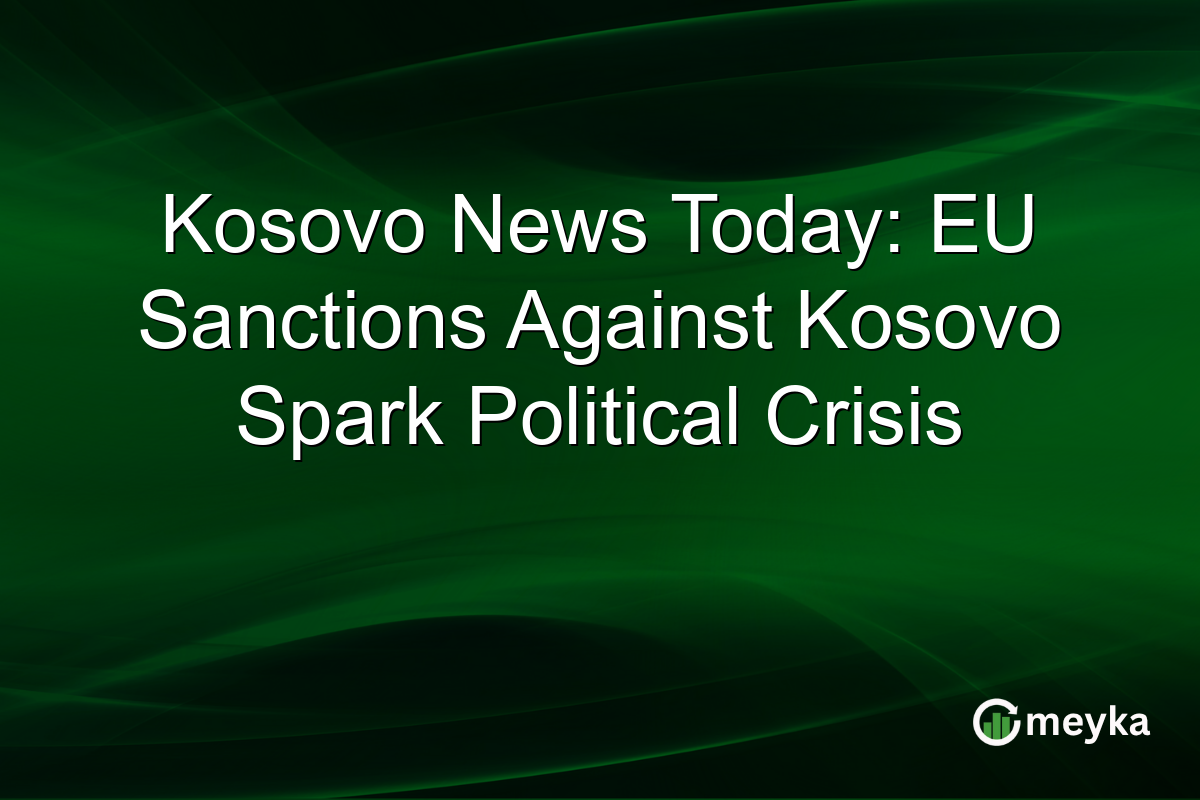Kosovo News Today: EU Sanctions Against Kosovo Spark Political Crisis
The European Union’s recent sanctions on Kosovo have ignited significant political unrest. These actions, stemming from ongoing disputes with Serbia, have raised concerns in the region. With Kosovo’s stability under question, investors and businesses are closely watching these developments. This article explores the impact of these sanctions and their potential effects on Kosovo’s economy and international relations.
Background of the EU Sanctions
The European Union imposed sanctions on Kosovo due to unresolved tensions with Serbia. These sanctions come as a response to what the EU perceives as destabilizing actions by Kosovo. The decision marks a crucial moment in the region, inviting global attention. This situation not only affects diplomatic relations but also raises questions about Kosovo’s future. For detailed insights, you can visit Reuters on Kosovo sanctions. These measures underscore the challenges EU and Kosovo face in maintaining peaceful relations in the Balkans. While finding a resolution seems distant, the EU’s stance serves as a reminder of the lasting impact of regional disputes on broader stability.
Political Unrest and Its Consequences
Kosovo’s internal political scene is in turmoil. Local leaders are under pressure to respond effectively to these sanctions. This political unrest complicates governance and puts democratic institutions to the test. Public protests and opposition critiques are intensifying daily. The situation might lead to new elections or changes in the ruling coalition, as the government plans its next steps. This political crisis affects not only Kosovo’s internal affairs but also its external diplomacy.
Impact on Kosovo’s Investment Climate
These developments pose risks for investors considering the region. Kosovo’s political instability increases the unpredictability for businesses. Companies operating in Kosovo, especially those involved in cross-border trade, may face challenges. The sanctions have introduced a degree of uncertainty which affects international trade relationships, potentially leading to decreased foreign direct investment. There is concern that ongoing tensions might deter further economic growth as businesses reevaluate their operations. More on this topic is discussed in CNBC’s report. Investors keen on entering Kosovo’s market must navigate these challenges wisely, considering both current and long-term implications.
Final Thoughts
The EU sanctions against Kosovo highlight the complex political dynamics in the Balkans. The effects of these sanctions reach beyond political unrest; they influence Kosovo’s economy and its attractiveness to foreign investors. Political leaders must seek a path to stability to reassure investors and foster economic growth. Businesses looking to operate in Kosovo need to assess risks while engaging with the local market. Stability is crucial for enhancing Kosovo’s economic prospects and ensuring successful international relationships. As the situation develops, active monitoring and strategic planning will be vital for stakeholders involved.
FAQs
The EU imposed sanctions on Kosovo due to its unresolved disputes with Serbia, which have contributed to regional instability. These actions are intended to pressure Kosovo into stabilizing its political relations.
The sanctions introduce uncertainty, affecting foreign investments and international trade. Businesses face challenges due to increased unpredictability in political and economic conditions, potentially hindering economic growth.
Long-term effects could include prolonged political instability, reduced foreign investment, and strained diplomatic relations. Addressing these issues is essential for Kosovo’s economic stability and international standing.
Disclaimer:
This is for information only, not financial advice. Always do your research.






